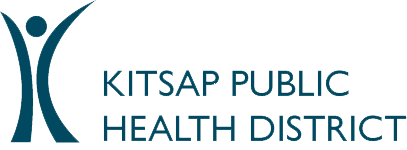
The state Department of Health has posted guidance for healthcare providers in response to Oseltamivir (Tamiflu) shortages being reported in some Washington communities. Healthcare providers and long-term care facilities that are treating influenza infections in high risk patients and are not able to obtain necessary supplies of Tamiflu should contact Kitsap Public Health District for assistance.
Please note: Supplies of Tamiflu have extensions on the expiration dates until 2036. The extension (20 years) documentation is linked for your review. For details, see the State Antiviral Drug Stockpile HHS Update from April 28, 2022.
Here are the Washington State Department of Health recommendations:
Management of Oseltamivir (Tamiflu) Shortage
Situation:
Significantly elevated respiratory viral activity, including early increases in influenza viral infections, has contributed to a shortage of commonly used medications, including oseltamivir (Tamiflu ®). Many communities in Washington state may continue to experience shortages in the coming weeks.
Assessment:
To ensure an adequate supply of antiviral medications for individuals who are at high risk for severe influenza-associated complications, the Washington State Department of Health is providing the following recommendations on the use of oseltamivir when supply is limited. Preventative strategies to reduce the burden of influenza should be maintained, including influenza vaccination and messaging about general infection prevention.
Recommendations:
- The use of oseltamivir for the purpose of chemoprophylaxis is discouraged with rare exceptions (e.g. influenza outbreak in LTCF).
- Treatment of influenza with oseltamivir is recommended for the following populations:
- Hospitalized patients of any age with confirmed or suspected influenza and respiratory illness symptoms.
- Patients with confirmed or suspected* influenza at higher risk for decompensation/complications within 48 hours of symptom onset, or within 5 days if symptoms are progressive. These include the following groups:
- Children younger than 2 years old and adults 65 years of age and older
- Chronic conditions
- Asthma, COPD or other chronic respiratory conditions
- Severe kidney and liver disease
- Poorly controlled diabetes or metabolic disorders (such as inherited metabolic or mitochondrial disorders)
- History of heart disease and/or stroke
- Neurologic and neurodevelopmental conditions
- Morbid obesity (BMI≥40)
- Active malignancy/hematologic disorder
- Severely immunocompromised
- Nursing home and long-term care facility residents
- Pregnant people (up to 2 weeks post-partum)
- The use of higher doses of oseltamivir (more than 75 mg per dose) for the treatment of seasonal influenza is discouraged; Recommended duration for antiviral treatment is 5 days for oseltamivir.
- Oral suspension formulation should be reserved for pediatric patients unable to take pills.
- If oral suspension is unavailable, consider opening capsules and mixing with a thick sweetened liquid.**
- Alternatives for Outpatient Treatment (inhaled zanamivir, intravenous peramivir, or oral baloxavir) may be considered for outpatient treatment. Current limited evidence suggests oral baloxavir is effective for both treatment of uncomplicated influenza and post-exposure prophylaxis. Consideration of alternative antiviral medication for hospitalized patients should be made in conjunction with expert consultation. Before choosing and prescribing an alternative antiviral be sure to review approved age groups, contraindications, and any applicable renal/hepatic dosing recommendations.
*Given the increased circulation of numerous respiratory viruses in the community, we recommend testing to confirm the diagnosis of influenza as long as testing does not delay treatment for priority groups per CDC influenza antiviral medication guidance.
**Oral capsules come in 30, 45 and 75mg strengths. Attention should be paid to ensure appropriate weight-based dosing.
These recommendations are intended to provide guidance, but do not replace clinical judgement, expert consultation or other recognized guidelines (e.g. IDSA, AAP and CDC).
Additional References:
- Influenza Antiviral Medications: Summary for Clinicians | CDC
- Recommendations for Prevention and Control of Influenza in Children, 2022–2023 | Pediatrics | American Academy of Pediatrics (aap.org)
- Clinical Practice Guidelines by the Infectious Diseases Society of America: 2018 Update on Diagnosis, Treatment, Chemoprophylaxis, and Institutional Outbreak Management of Seasonal Influenza (idsociety.org)
